
Amazon on Monday announced a new translation service, which makes it easier for Kindle Direct Publishing (KDP) authors to share their eBooks in multiple languages. Dubbed Kindle Translate, it leverages artificial intelligence (AI) to translate text from and to English and select other languages. The service is currently in beta, and the eBook titles translated using it will carry a clear label when listed on the Amazon store for purchase.
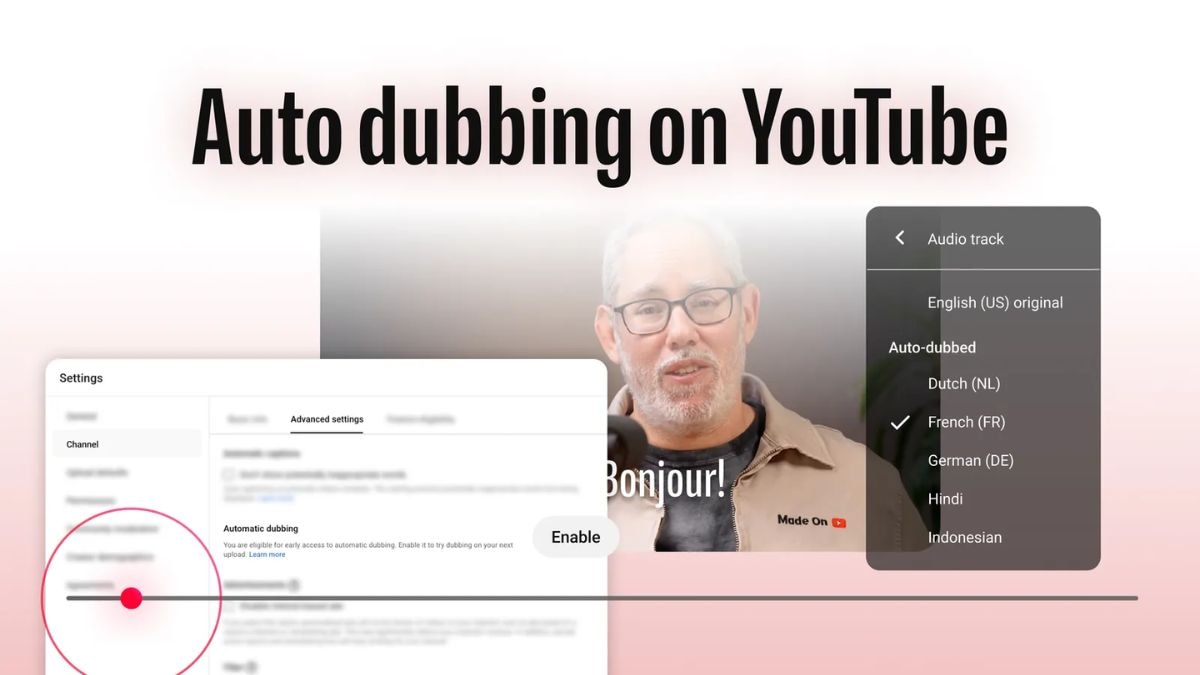
YouTube, on Wednesday, announced that its artificial intelligence (AI)-powered auto-dubbing feature is now being expanded to everyone. The feature can automatically transcribe and translate a video’s spoken words into a different language, allowing even those who do not speak the language understand the content. It was first introduced at VideoCon 2023 as a pilot, and then in 2024, it was expanded to knowledge and information-focused videos.
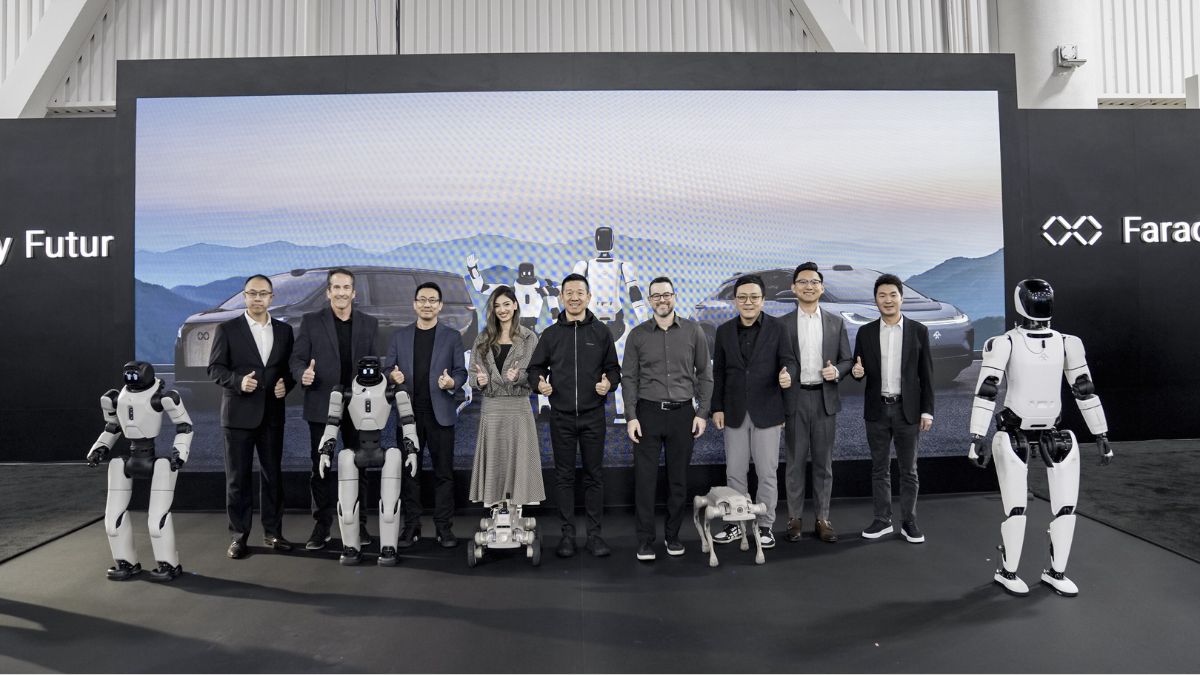
Faraday Future, a Los Angeles, California-based tech firm, introduced three new series of robot products during the annual National Automobile Dealers Association (NADA) Show in Las Vegas on Wednesday. The launch marks Faraday Future’s first major public unveiling of its embodied AI (EAI) robotics lineup, which the company says will go on sale immediately and aims to complement its intelligent mobility strategy.

Anthropic fired shots at OpenAI and ChatGPT on Wednesday with its new Super Bowl commercials. The Claude-maker dropped four different advertisements, with each targeting ads in AI chatbots. While no rival company or product was mentioned directly, the ChatGPT-maker recently announced that it is testing ads in the chatbot, making the connection obvious for viewers.

Take-Two CEO Strauss Zelnick has said that generative AI has "zero part" in GTA 6 development. The executive said that the company utilised AI as productivity tools, but not for creativity. Zelnick said that AI tools will not create great entertainment properties.

Samsung is collaborating with another South Korea-based tech firm, Nota AI, to build a new AI-powered image generator feature, dubbed EdgeFusion, a tipster claims. The tech giant reportedly plans to integrate the EdgeFusion into its upcoming Samsung Galaxy S26 lineup, which could include the standard Galaxy S26, Galaxy S26+, and Galaxy S26 Ultra. The new flagship Galaxy S series phones will reportedly be launched by the company on February 25, while going on sale in March. However, the company has yet to confirm the launch and other details about the phones.

Microsoft introduced a new marketplace to streamline content licensing between publishers and artificial intelligence (AI) developers on Tuesday. Dubbed Publisher Content Marketplace (PCM), the Redmond-based tech giant said the space will streamline the process of companies wanting to ethically source content for AI models, and publishers wanting a fair payment for AI usage.

RentAHuman.ai is a new service that was launched by Alexander Liteplo, an Argentinian crypto engineer, on Monday. The platform allows AI agents to hire humans to perform real-life physical tasks on their behalf. Developers can use Anthropic's MCP (Model Context Protocol) to integrate their AI agents with the new platform to start renting humans. These AI agents can ask humans to deliver packages, drive people to places, pick up groceries from stores for others, and feed their pets when they are away from home.
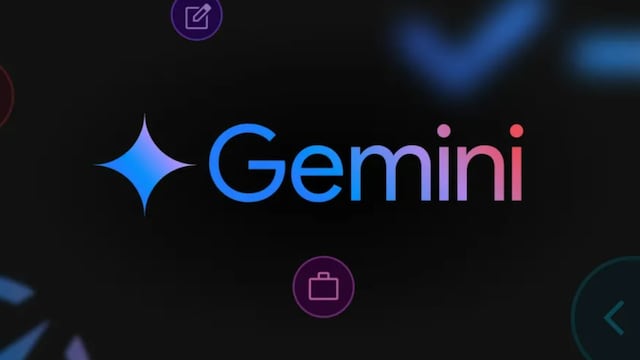
Google is said to be working on new agentic features for Gemini. The APK teardown of the Google app version 17.4 beta reportedly reveals a new Gemini agentic feature known as “Get tasks done with Gemini". The Labs feature is reportedly shown with strings explaining that “Gemini can help with tasks, like placing orders or booking rides, using screen automation on certain apps on your device.”

Google Maps is reportedly working on a new artificial intelligence (AI) feature that will make editing a listing more accessible to users. As per the report, the Mountain View-based tech giant is trying to upgrade the “Suggest an edit” feature in the platform by integrating it with Gemini. This will open a conversational interface for users trying to change or correct information about any place or shop listed on Maps.

Apple is adding more artificial intelligence (AI) capabilities in Xcode, its integrated development environment (IDE) for building apps across its platforms. The Release Candidate of Xcode 26.3 began rolling out for developers on Tuesday, and one of its biggest highlights is the support for agentic coding. The Cupertino-based tech giant is now letting AI agents access the platform and perform certain tasks, increasing the scope of task automation within the IDE.

NASA’s Mars rover, Perseverance, recently completed its first drive using commands shared by Anthropic’s artificial intelligence (AI) chatbot, Claude. The milestone marks the first time a generative AI model has played a direct role in planning a rover’s movement on another planet. The drive took place on January 27, with Claude delivering high-level navigation instructions that were translated into precise waypoints before transmission to Mars.

Mozilla Firefox is adding a new capability to give users more control of the artificial intelligence (AI) features they see in the browser. The company has announced that with the next update, slated for later this month, the Firefox browser will feature a centralised control centre that will let users pick and choose which AI features they want enabled on the app and which ones they do not want to see.

OpenAI has released the Codex app for macOS, a dedicated desktop application designed to help developers manage and collaborate with multiple AI coding agents at once. The new app gives programmers a macOS-native interface where teams of artificial intelligence (AI) agents can run tasks in parallel, organise workflows by thread, and interact with code repositories directly.

Google is reportedly testing a new feature for Gemini, which is aimed at making it easier for users of other chatbots to switch to Google’s artificial intelligence (AI) platform. As per the report, the Mountain View-based tech giant is working on an “Import AI chats” feature that lets users bring the entire chat history on a different platform, such as OpenAI’s ChatGPT, to Gemini.

Oakley Meta Vanguard was launched in India on Tuesday. Aimed at athletes who engage in outdoor activities, the smart glasses arrive as a redesigned version of the Ray-Ban Meta Glases. They feature a centrally-placed 12-megapixel camera with support for 1080p video recording at 60 frames per second (fps). Like the Ray-Ban Meta, the Oakley Meta Vanguard have Meta AI integration, enabling users to listen to or speak with Meta AI or on calls.

Google’s existing framework for its artificial intelligence (AI) tools in Search has come under fire in the UK. The country’s Competition and Markets Authority (CMA) proposed multiple measures for the Mountain View-based tech giant to help businesses and users make active and informed choices when using services, such as AI Overviews and AI Mode.

Oracle is reportedly considering cutting between 20,000 and 30,000 jobs to fund its artificial intelligence (AI) data centre buildout. As per the report, several US banks have backed out of funding the company’s ambitious plans to build AI data centres after raising questions about the company’s ability to handle such a large-scale project.
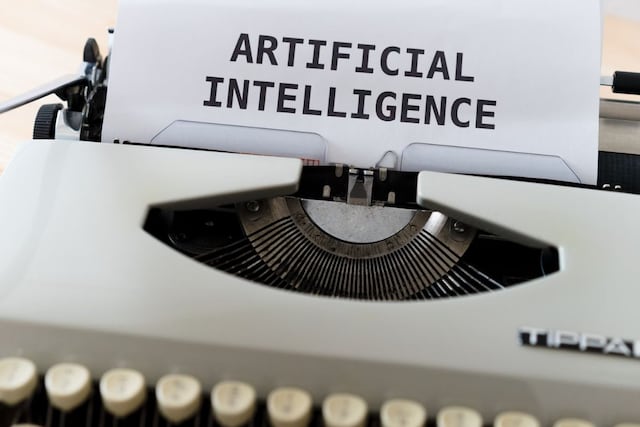
Anthropic’s new study has found some concerning evidence. The artificial intelligence (AI) firm has found “disempowerment patterns,” which are described as instances where a conversation with an AI chatbot can result in undermining users’ own decision-making and judgment. The work, which draws on analysis of real AI conversations and is detailed in an academic paper as well as a research blog post from the company.

Apple’s artificial intelligence (AI) projects have so far sparked a tepid response from users and investors. Despite announcing AI as a key venture during its latest earnings call, CEO Tim Cook did not specify any monetisation plans, leading to a weak stock market reaction. Now, a new report reveals that the Cupertino-based tech giant might have lost multiple AI researchers to rival companies, adding to its list of problems.

Google is expanding the conversational Gemini support in Google Maps to more navigation modes. On Thursday, the Mountain View-based tech giant announced that Gemini in navigation will also support walking and cycling navigation, adding it to the existing four-wheeler and two-wheeler navigations. The new update will enable walkers and cyclists to get hands-free assistance on their route, and even complete certain tasks as sending text messages.

OpenAI announced the retirement date for several legacy artificial intelligence (AI) models in ChatGPT. Most notable in the list is the GPT-4o, which has already survived one sunset attempt. In August 2025, the San Francisco-based AI giant tried to retire the model after introducing GPT-5, but many users protested, highlighting that the newer model lacked the emotional nuance and writing sophistication of the legacy model.

Months after previewing the Genie 3 artificial intelligence (AI), Google is now rolling out access to Project Genie as an experimental research prototype. On Thursday, the Mountain View-based tech giant announced that select premium Gemini subscribers will now be able to generate AI-powered playable virtual worlds in Gemini. The experience is powered by the same Genie 3 model and also leverages Nano Banana and Gemini 3 to let users generate completely interactive worlds.

Apple has confirmed that its next-generation, personalised Siri will be powered by Google’s Gemini models, while continuing to run on-device and through Apple’s Private Cloud Compute. Speaking during its fiscal Q1 2026 earnings call, executives emphasised privacy and said Apple’s in-house AI work will continue alongside the Gemini partnership. The company declined to share financial details, adoption figures for Apple Intelligence, or its impact on sales. Apple and Google have said the Gemini-powered Siri will launch later this year.

Google has introduced new Gemini AI tools for the Joint Entrance Examination (JEE) Main examination aspirants. The company has partnered with two Indian coaching institutes, PhysicsWallah and Careers360, to bring practice tests for JEE Main students. Along with the practice tests, Gemini will provide detailed feedback to students, highlighting their scores along with the incorrectly and correctly answered questions. The company will soon bring the same to its AI Mode in Search in India. Through the examination, various premium engineering institutes, including the Indian Institute of Technology (IIT), admit students.

OpenAI has launched Prism, a free AI-assisted workspace built around GPT-5.2 to support scientific writing, collaboration and research workflows. The LaTeX-native platform unifies drafting, editing, literature search, citation management and real-time collaboration in one cloud environment. Prism is available to anyone with a ChatGPT personal account, with plans to expand access for Business and Education users.

Samsung has long been rumoured to be developing several smart wearable devices of various form factors. During a recent earnings call, a company official announced the South Korean tech conglomerate’s plans to launch the next-generation augmented reality (AR) glasses in 2026. While Samsung has yet to reveal exactly what its AR glasses will offer, they are confirmed to support multimodal artificial intelligence (AI) capabilities.

Snap announced the creation of Specs Inc., a wholly owned subsidiary of the parent company, on Wednesday. The Santa Monica, California-based company said that Specs Inc. will focus on the augmented reality (AR) smart glasses division and grow as a distinct brand. The timing of the development is interesting, given that the parent company is also gearing up to launch the first consumer-focused smart glasses dubbed Specs.

Adobe and Bharti Airtel announced a partnership on Thursday. As part of the announcement, the software giant will offer a one-year free subscription of Adobe Express platform to all users of the telecom service provider. This includes Airtel’s prepaid and postpaid subscribers, Xstream users, and those with its DTH connection. In turn, the partnership brings roughly Rs. 4,000 worth of free subscriptions to more than 360 million Indians for the next 12 months.

Amazon said on Tuesday it was closing its remaining bricks-and-mortar Fresh grocery stores and Go markets, despite years of effort, and said it was dropping its Amazon One biometric payment system, which scans the palm of a customer's hand.

Google has now expanded its most affordable artificial intelligence (AI) subscription globally. On Wednesday, the Mountain View-based tech giant announced that the Google AI Plus plan will be available everywhere it has a paid subscription available, rolling it out to 165 countries and territories. Interestingly, the US is in the last batch of regions to receive this plan, four months after the tech giant ran a pilot in Indonesia.

Artificial intelligence (AI) has emerged as a transformative technology which has boosted multiple industries and tasks that could only be done manually earlier. However, it also comes with its share of downsides. One of them was exposed when, in December, xAI’s chatbot Grok, which is integrated across X (formerly Twitter), started complying with requests to generate sexually suggestive image edits of users’ photos.

Google is reportedly working on a new wellness feature for Gemini. As per the report, the Mountain View-based tech giant is testing short break reminders that will be shown to users when they have been chatting with the artificial intelligence (AI) chatbot for a while. The mindfulness alert was reportedly spotted in the latest beta version of the Google app, and the message states that users should not think Gemini is human.

Google is bringing its AI-based photo editing tools to Google Photos users in India. The update allows Android users to make edits by describing changes through text or voice commands. Backed by Gemini, the features include conversational edits, personalised adjustments for people in photos, and creative scene transformations using Nano Banana. The tools work on devices with at least 4GB RAM and Android 8.0 or higher, support several Indian languages, and add content credentials to identify AI-edited images.

Google is making two new additions to the artificial intelligence (AI) features in Search. The Mountain View-based tech giant has now added the Gemini 3 AI model to both AI Overviews and AI Mode, making them more performant than before. Additionally, the company is also making it easier to transition from the results page to AI Mode.
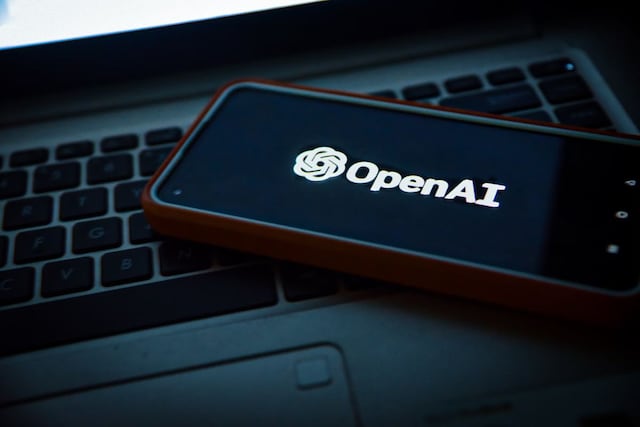
OpenAI CEO Sam Altman admitted that writing performance on ChatGPT has recently witnessed regression, and attributed it to selective training of the latest artificial intelligence (AI) model. The company hosted its inaugural town hall on Tuesday, inviting AI builders from across the ecosystem to ask questions and share feedback on its various products and services.

OpenAI’s report shows scientists are using AI systems like ChatGPT to assist with research tasks from literature review to experimental planning. The company argues these tools can increase productivity in science and engineering and advocates broader access to advanced AI for researchers. Experts note AI can help but still requires human oversight in complex research.

Swiggy will soon allow users to place orders, make dining reservations, and track deliveries via artificial intelligence (AI) chatbots. On Tuesday, the Indian online food and grocery delivery platform announced the launch of Model Context Protocol (MCP) integration across its different business verticals. Developed by Anthropic, MCP allows AI chatbots to connect with third-party data hubs to access data and perform actions on behalf of the user.

Microsoft introduced Maia 200, a next-generation AI inference chipset built on TSMC 3nm technology, with over 140 billion transistors, high-bandwidth memory and scalable networking. Maia 200 aims to accelerate large-scale AI workloads in Azure with improved performance per dollar and support for demanding models such as GPT-5.2, and comes with an SDK for developers.

Google has agreed to pay $68 million to resolve a lawsuit alleging that its voice-activated Google Assistant improperly listened to smartphone users and violated their privacy. The proposed class‑action settlement, filed in federal court in San Jose, awaits approval from US District Judge Beth Labson Freeman. Plaintiffs claimed Google secretly captured and shared private conversations when the assistant was unintentionally activated, enabling targeted advertising.

NASA’s TESS mission is revolutionising the search for exoplanets with the help of artificial intelligence. Using deep-learning tools such as ExoMiner++, scientists can rapidly distinguish real planetary transits from stellar noise. This approach has already revealed thousands of planet candidates and is expected to play a crucial role as upcoming missions deliver an even greater flood of exoplanet data.

Microsoft is updating Paint and Notepad for Windows Insiders with new AI and usability features. Paint’s AI Colouring book lets testers generate line art from text prompts on Copilot+ PCs, and a fill tolerance slider fine-tunes colouring. Notepad gains expanded Markdown support and faster streaming previews for Write, Rewrite and Summarize features.

Apple is reportedly in talks with Google to use its cloud service infrastructure to power a new version of Siri. As per the report, the Cupertino-based tech giant is planning to introduce a chatbot version of Siri, which will be more capable and feature-rich. This is said to be separate from the artificial intelligence (AI)-powered Siri that is said to arrive this spring alongside the iOS 26.4 update.

Security researchers have reportedly identified a new Android malware that uses artificial intelligence to carry out hidden ad fraud. The malware is said to rely on machine learning to identify and click ads automatically, often through a hidden browser window. It spreads mainly through casual games on alternative app stores and third-party APK platforms. While users may notice battery drain or higher data usage, experts warn that the malware could be misused for more serious threats beyond ad fraud.

Google Photos is launching Me Meme, an AI feature that lets users generate personalised memes by inserting their own photos into popular meme formats. The tool works through the “Create” menu, offers a range of templates and lets users customise captions. Me Meme is optional, user-initiated and rolling out gradually in supported regions.

Google’s AI Mode in Search now supports Personal Intelligence, an opt-in feature that lets the assistant reference Gmail and Google Photos to tailor responses using personal context. Available initially to AI Pro and AI Ultra subscribers in the U.S., the update is designed to reduce repetitive context setting and make search answers more relevant to individual users.

Adobe Acrobat is getting new artificial intelligence (AI) capabilities, owing to a deeper integration with Adobe Express, the company’s cloud-based content creation platform. One of the biggest highlights is the improvement to the AI chatbot in Acrobat, which can now edit PDFs based on natural language prompts. Additionally, the content creation platform’s capabilities also allow Acrobat to generate presentations and audio podcasts using information from documents.

Apple is reportedly planning to turn its voice assistant Siri into an artificial intelligence (AI) chatbot. As per the report, the Cupertino-based tech giant wants to enter the generative AI chatbot race and compete with companies such as OpenAI, Google, Anthropic, and xAI. The chatbot transformation is not just a redesign process; the company will reportedly also add new features and capabilities, making it a far more capable device assistant than what Siri is today.

YouTube has big plans for its platform and creators in 2026. The company is planning to integrate artificial intelligence (AI) more deeply in existing and new tools. The CEO of the streaming platform revealed on Wednesday that content creators will soon be able to use AI to generate Shorts in their likeness.

Apple is reportedly planning to develop an artificial intelligence (AI) Pin. As per the report, the Cupertino-based tech giant is planning to take on the idea of an AI-powered, voice-activated wearable pin, which companies like Humane and Rabbit have already failed at. Not a lot is known about this device, but the report claims that the company is planning to equip it with cameras, microphones, a speaker, and a physical button.

At the World Economic Forum in Davos, Microsoft CEO Satya Nadella reportedly warned that the AI boom could falter if adoption remains concentrated among large tech firms, as per the Financial Times. He emphasised the need for broader industry uptake where economic value is measurable. The comments reflect ongoing debate about AI’s transition from hype to real-world use.